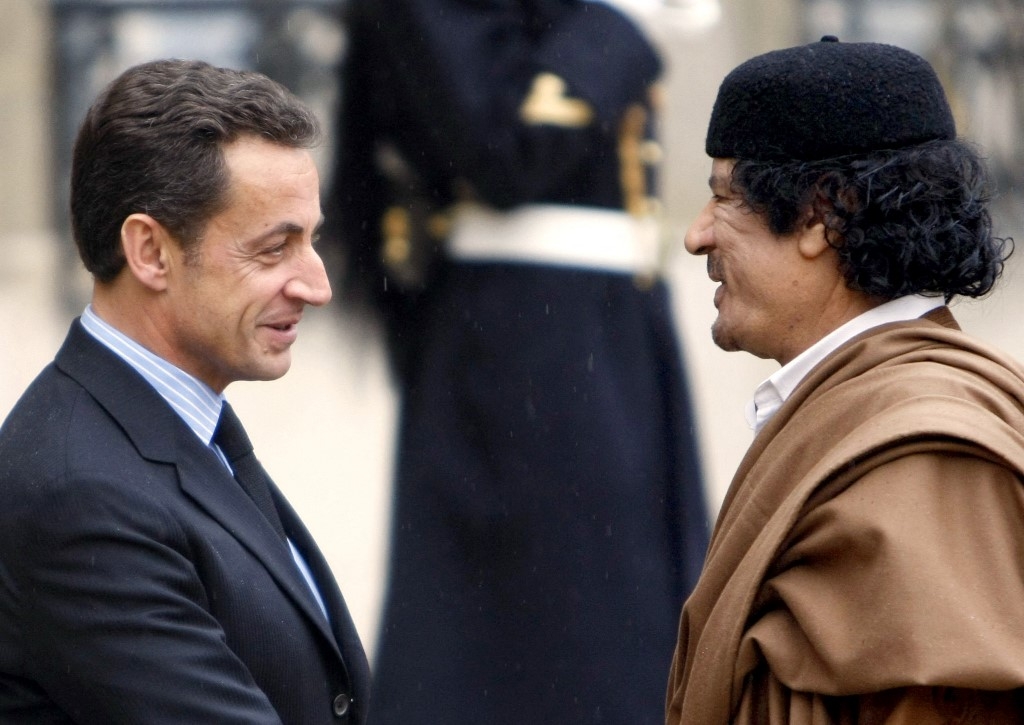French spy-tech firms accused of 'complicity in torture' in Libya and Egypt

French prosecutors have accused four executives at two French technology companies of being complicit in torture and enforced disappearances, after they allegedly sold surveillance technology to the Libyan and Egyptian governments, a rights group said on Tuesday.
The firms, Amesys and Nexa Technologies, are suspected of selling internet surveillance gear to the two countries, which were then used to track down opposition figures who were later detained and tortured.
The former chief of Amesys, Philippe Vannier, was charged in Paris last week with "complicity in acts of torture", according to the International Federation for Human Rights (FIDH). Olivier Bohbot, head of Nexa Technologies, and two other executives were charged with "complicity in acts of torture and forced disappearances".
"This is a tremendous step forward. It means that what we see every day on the ground- namely the links between the activity of these surveillance companies and human rights violations - can be classified as crimes and lead to charges of complicity," Clemence Bectarte and Patrick Baudouin, lawyers for FIDH, said in a statement.
Investigations were opened after the deals were reported on by the Wall Street Journal and WikiLeaks in 2011, when the Arab Spring protests swept through the Middle East and North Africa.
The WSJ report revealed that Amesys had provided technology to the government of Muammar Gaddafi in Libya that allowed it to secretly intercept internet messages.
In 2017, FIDH filed a complaint against Nexa Technologies, accusing it of selling an updated version of Amesys's software called "Cerebro", capable of real-time message or call tracing, to the government of Egyptian President Abdel Fattah el-Sisi.
Egyptian authorities are accused of detaining more than 60,000 political prisoners since Sisi ousted his democratically elected predecessor, Mohamed Morsi, in a 2013 military coup.
Harsh conditions in Egypt's prisons have led to the deaths of scores of prisoners, including Morsi in 2019, while executions of prisoners under terrorism laws have been ramped up.
Regulating spy-tech sales
The FIDH said judges were also investigating the sale of similar technologies to Saudi Arabia, a country that has been accused on multiple fronts of using digital spy tools to track and target political dissidents.
Rasha Abdul Rahim, director of Amnesty Tech, welcomed the news and called for countries to implement a regulatory system to put a check on the sale of surveillance technologies.
'We hope that this long-awaited acceleration of the judicial process will continue'
- Michel Tubiana, French League for Human Rights
"Until such a framework is put in place, a moratorium on the purchase, sale, transfer and use of surveillance equipment to governments linked to human rights violations should be enforced," Rahim said in a statement.
Still, despite the progress in the case, rights groups have said that there is still no sign that French authorities will introduce measures to ensure these regulations happen and that such surveillance technology is not used for human rights violations, such as torture and forced disappearances.
"We hope that this long-awaited acceleration of the judicial process will continue, and that the French authorities will resolutely commit to taking all measures to prevent the export of 'dual-use' surveillance technologies to countries that seriously violate human rights," Michel Tubiana, lawyer and honorary president of the French League for Human Rights, said in a statement.
"This case shows that this has not been the case so far."
Middle East Eye delivers independent and unrivalled coverage and analysis of the Middle East, North Africa and beyond. To learn more about republishing this content and the associated fees, please fill out this form. More about MEE can be found here.





